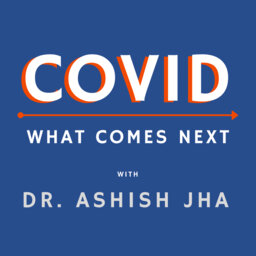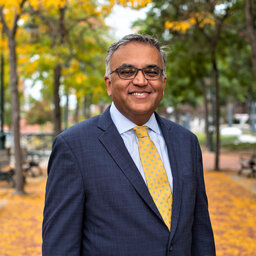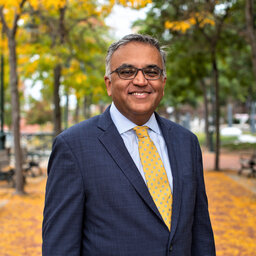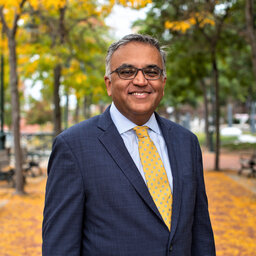Welcome to Episode 21 of “COVID: What comes next,” an exclusive weekly Providence Journal/USA TODAY NETWORK podcast featuring Dr. Ashish Jha, dean of the Brown University School of Public Health and an internationally respected expert on pandemic response and preparedness.
PROVIDENCE – With polls showing that large numbers of Republicans -- males especially -- are not planning to be vaccinated against COVID-19, faith, political and other leaders must spread the message that inoculations are safe and effective.
So declared Brown University School of Public Health dean Dr. Ashish Jha on Tuesday during the 21st taping of the national “COVID: What Comes Next” podcast.
“I want to hear religious leaders, I want to hear political leaders talk about the importance of vaccinations,” Jha said, “that it's really for people, good for their communities and for their families. I think we can get there, but I'm worried about this demographic. I think we have not paid enough attention to them.”
Vaccine resistance, Jha said, is rooted in two main areas: misinformation over the last many months that has led some people to believe that COVID-19 is “not a big deal,” Jha said, and other misinformation about the nature of the three vaccines now available to Americans, the Pfizer, Moderna and Johnson & Johnson products.
Many people “who spent the last year saying that the fact that the disease was a hoax are now spending their time saying gibberish about the vaccine, that it's somehow going to control your body and do mind control and it's got nanoparticles and all sorts of stuff,” Jha said. “I feel really bad for folks who are kind of inundated with this kind of information and it's no surprise you see a lot of hesitancy in that group.”
Jha described as “unfortunate” former President Trump’s decision last year to “get his vaccine in secret” while he was at the White House.
“That should have been a public event,” Jha said during Tuesday’s taping of the podcast, available exclusively from The Providence Journal and the USA TODAY NETWORK. “He can still cut an ad now talking about getting vaccinated -- why it's important and why people should do it. He has a lot of credibility with a lot of Americans and I think that would be enormously important.”
Jha gave continuing high marks to the vaccine rollout in America, saying “things are cooking along pretty well. This weekend was a good weekend. We vaccinated six million people over the weekend: three million a day on Saturday and Sunday. Those are incredible numbers.”
Abroad, however, the pandemic picture differs dramatically, with Taiwan seeing fewer than 1,000 cases and only ten deaths -- and Italy reimposing a lockdown.
Jha explained some of the factors at work.
“One of the reasons why some countries have done so well is because they've just really adhered strongly to public health measures,” Jha said. “They've shut things down or put public health restrictions when things got bad, but mostly they've used testing and tracing and other public health tools and they've been able to manage their way through this pandemic.”
Italy, he said, “is in trouble and going into a lockdown” in large measure because with the exception of the United Kingdom, Jha asserted, not enough Europeans have been vaccinated. And that, he said, can be attributed to insufficient inoculations.
“They don't have the vaccines,” he said. “They didn't plan for this effectively and so they are in trouble.
As always, Jha answered questions from the national audience:
• “Should a recovered person seek the vaccine?”
Jha responded: “Absolutely. We’ve been largely recommending that people wait 90 days after recovery or after their symptom onset. So if you just had COVID last month and are now better, you probably don't need to go get vaccinated right now. You can wait 90 days.”
• “I donate blood every 8 weeks. Will getting the vaccine affect my donation? Also just curious if receiving blood with the vaccine/antibodies helps the recipients to become immune?”
Jha said: “If you've been vaccinated, you can absolutely give blood. I can't come up with any clinical reasons why you couldn't. And so then the question around it is: will it help the person receiving it? Probably not.”
• In response to an email from someone with an epidemiology background who had researched the term “COVID arm,” a term new to Jha when he heard it during last week’s podcast, the pandemic expert said he, too, after the taping had read a recent article in the New England Journal of Medicine that describes “COVID arm” as irritation around the injection site long after the Moderna vaccination.
This weekly podcast is hosted by G. Wayne Miller, health reporter for The Providence Journal. To hear more detail about the issues and questions addressed during this 21st episode, please download the podcast.
 COVID: What comes next - With Dr. Ashish Jha
COVID: What comes next - With Dr. Ashish Jha


